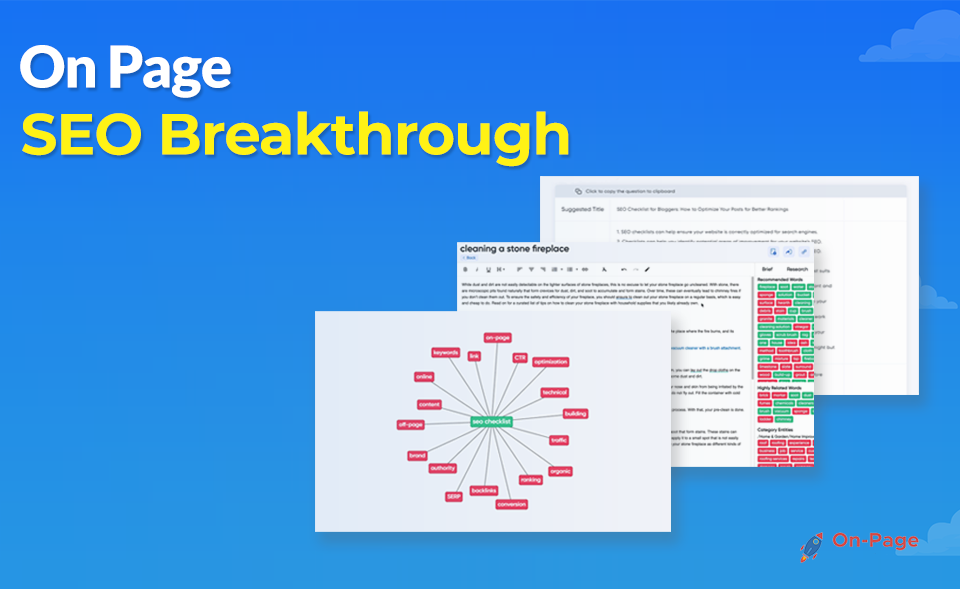New Search Engine Optimization Study From Hamburg University Reveals Some Users Might Be Tricked By Google Results
In an era where Google dominates our online experience, a riveting new study from Hamburg University of Applied Sciences peels back the curtain on Search Engine Optimization (SEO). The findings are both shocking and enlightening, revealing how little we know about the algorithms that shape our digital lives. Here’s what this new study reveals:
#1 The Illusion of Free Rankings
You might think that getting to the top of Google’s search results is a straightforward game, but the truth is far more complex. A staggering 43% of internet users believe that better rankings can be achieved without spending money. But hold on! A contrasting 79% are aware of the influence of paid advertisements.
The catch?
Only 29.2% can actually distinguish between paid ads and organic results. This highlights a glaring disconnect between our perceptions of search engines and the hidden mechanisms at play.
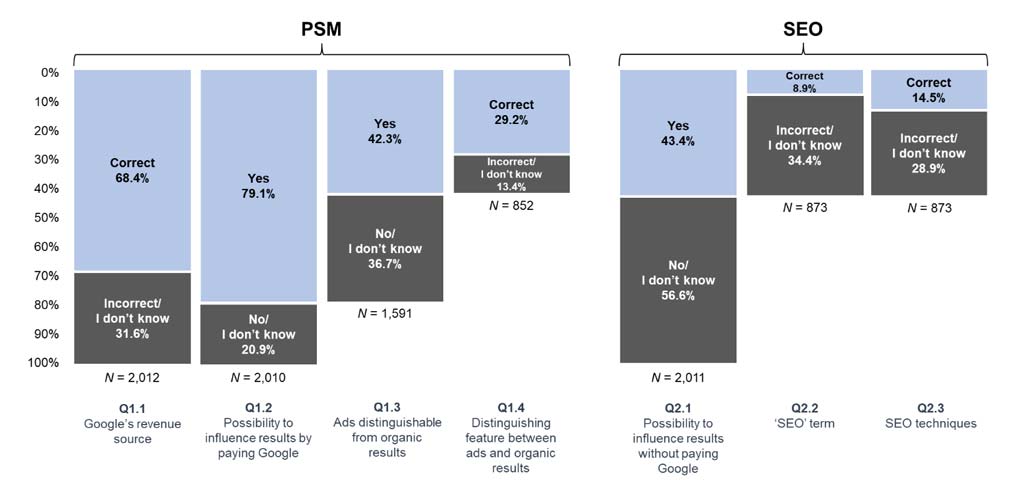
Credit: https://arxiv.org/ftp/arxiv/papers/2204/2204.10078.pdf
#2 SEO: A Hidden World
SEO isn’t just a buzzword; it’s a vast and intricate field that shapes the way websites appear in search results. While the term is known to only 8.9% of users, an intriguing 14.5% can name at least one SEO tactic. The study also found variations in success rates for identifying SEO-influenced results based on the complexity of the search engine result pages (SERPs).
Users were more successful with simple search engine result pages compared to complex ones. For example, pages with only ads and organic results were easier to identify than those that mixed in knowledge graphs, snippet results, right hand side shopping ads, etc. This unveils a mysterious world where SEO tactics are silently at work, influencing what we see and click.
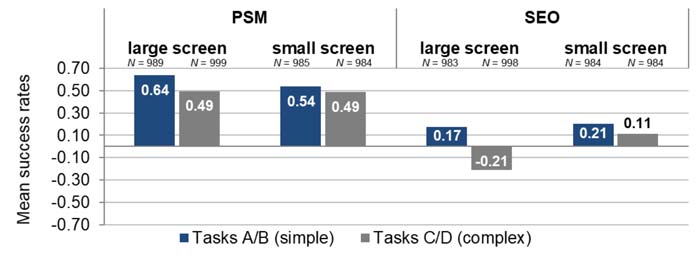
Credit: https://arxiv.org/ftp/arxiv/papers/2204/2204.10078.pdf
#3 The Battle of Screens
Here’s something you probably didn’t see coming: SEO results were identified more accurately on small screens than on large ones. The study found that participants achieved higher success rates on SERPs with simpler structures, especially on smaller devices. This unexpected discovery opens up new questions about how our browsing devices and interfaces may shape our understanding and perception of the web.
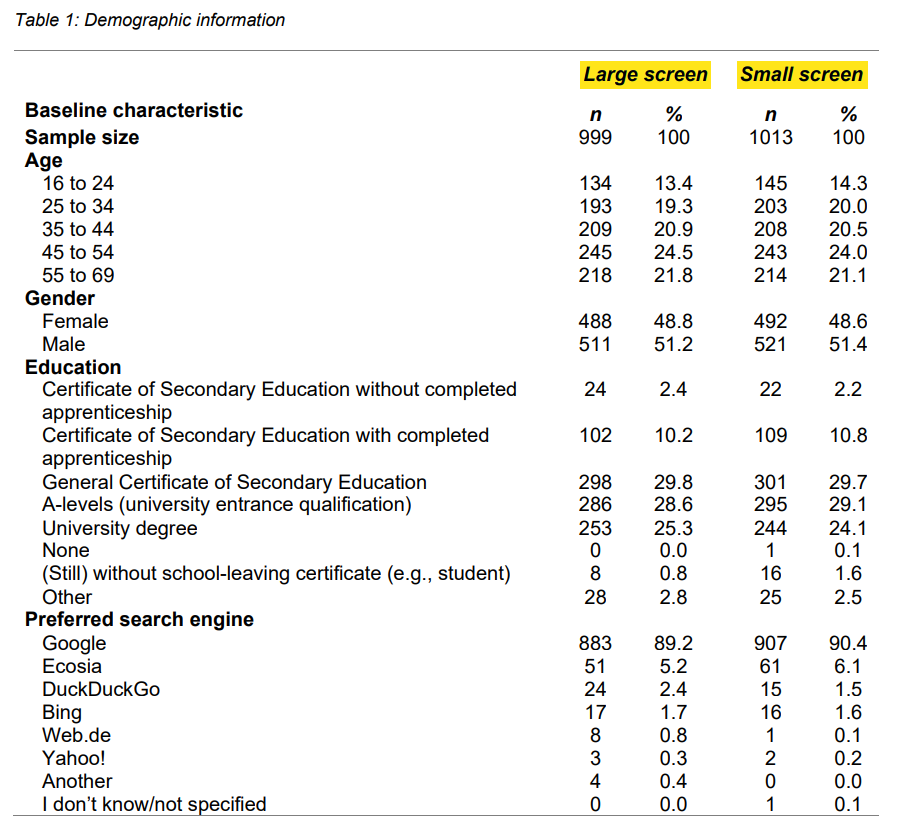
Impact of screen size
Credit: https://arxiv.org/ftp/arxiv/papers/2204/2204.10078.pdf
#4 The Power and Perception of SEO
SEO isn’t just about rankings; it’s about influence and perception. A substantial 59.2% of respondents believed that SEO has a strong (or very strong) impact on rankings. This means that a little over half the respondents are aware that results are being influenced by third parties.
When it comes to public opinion, 75.2% perceive SEO positively, compared to 68.4% who harbor negative views. The study uncovers a complex relationship between the public’s understanding of SEO and their attitudes towards it, revealing a multifaceted landscape where SEO is both admired and criticized.
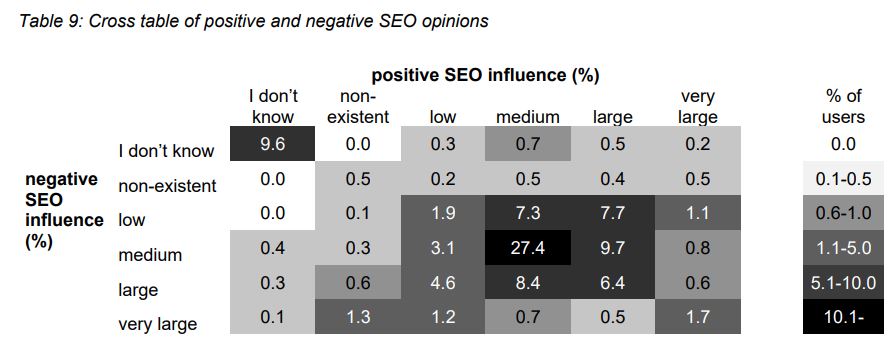
Credit: https://arxiv.org/ftp/arxiv/papers/2204/2204.10078.pdf
Implications and Future Considerations
The insights from this study aren’t just academic musings; they have real-world implications for search engine providers, regulators, and information literacy educators. The findings call for greater transparency in search engine operations and a more informed public discourse around SEO practices. They also open up new avenues for future research into how we interact with and understand the digital landscape.
This groundbreaking research sheds new light on the hidden world of SEO, revealing complexities and nuances that were previously overlooked. The battle for the top spot on Google is more intricate and fascinating than we ever imagined, and this study invites us to rethink our relationship with the search engines that guide our online journeys.
Dive into the full details of this captivating research by reading the full study published in Behaviour & Information Technology.
Share this article with your tech-savvy friends, curious family members, or anyone who’s ever Googled something.

